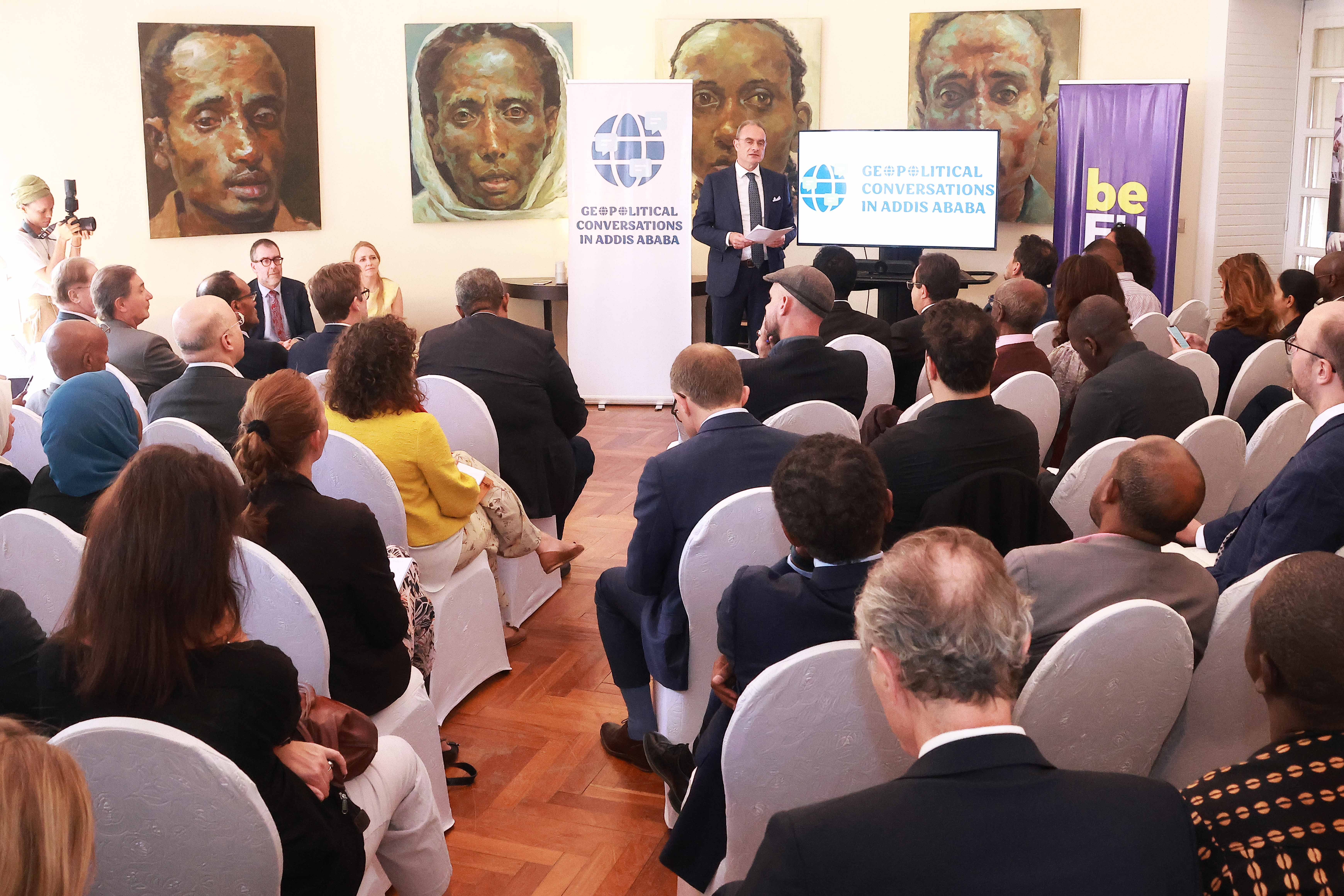
The growth of extremism across Africa was indicated as an alarming development, at the first of what will become a monthly gathering centred around global challenges and emerging geopolitical trends hosted by the Belgian Embassy. A need to revise European biases in viewing Africa as a country and not a continent, its residents as passive victims, its leaders as representatives of their people and the self-perception of 'good samaritan' by Westerners was forwarded. As part of the "Geopolitical Conversations in Addis Abeba" series, two professors from the Egmont Institute of International Relations highlighted the evolving dynamics of politics, trade and an increasingly multipolar world, which inspired lively discussions under Chatham House Rules. Participants s The discussion last week pitted the demerits of Western policy, marked by high-interest loans to developing countries in Africa, to the infrastructure targetting adjustable loans that China provides. Ideas revolved around pressures on the existing world order, which was birthing a new balance of power marked by a shift from the post-Second World War domination of the West and the recent reshuffle in trade dynamics caused by the Russo-Ukraine war.
[ssba-buttons]